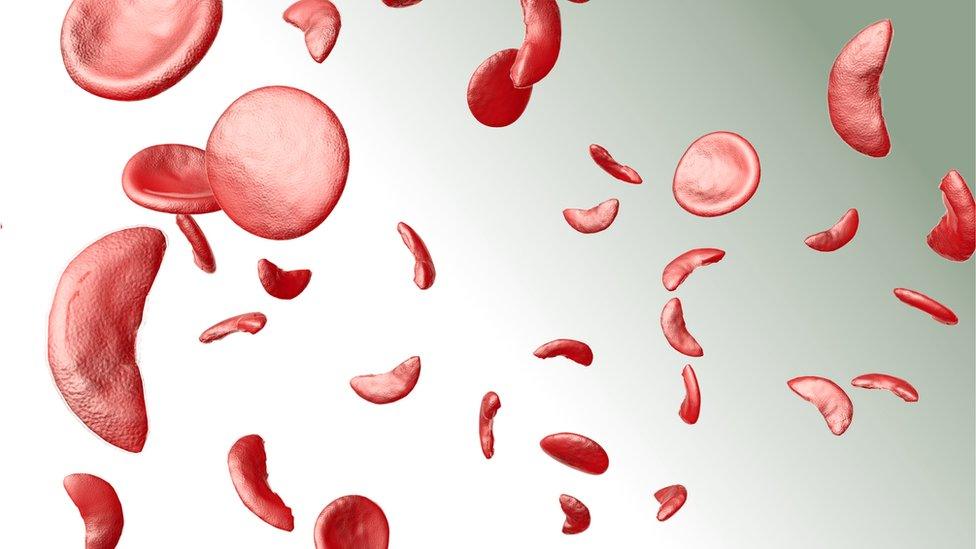Sickle cell disease: New treatment could help 5000 people
- Published
- comments

Sickle cell disease causes oddly shaped blood cells, which can cause various problems that need to be treated in hospital
A new sickle-cell treatment has been approved and will help keep lots of people who suffer from the disease stay out of hospital.
People who have sickle cell disease have unusually shaped red blood cells, which causes lots of health problems and they normally must be treated in hospital.
A drug called crizanlizumab is the first new treatment for the disease in 20 years and is considered "life changing".
NHS chief executive, Amanda Pritchard, thinks "this revolutionary treatment will help to save lives, allow patients to have a better quality of life and reduce trips to A&E by almost half."
Invisible Conditions: What not to say to someone
What is sickle cell?
Sickle cell disease is the name for a group of inherited health conditions that affect the red blood cells.
If you have sickle cell disease your body makes unusually shaped red blood cells. This can cause problems because they do not live as long as healthy blood cells and can block blood vessels.
Sickle cell disease is serious and you will have it your whole life, but having treatment may help ease some of the symptoms.
Anyone can be a carrier of sickle cell, but it's much more common in people from certain ethnic backgrounds.
In the UK, most people who carry the sickle cell trait have an African or Caribbean family background.
Sickle cell crisis or painful episodes - this is when the blood vessels become blocked and this causes severe pain. The pain can last up to seven days on average. These can happen every few weeks for some people while others may have less than one a year.
Infections - Those with sickle cell are more vulnerable to injections, especially when they are young.
Anaemia - Most people with sickle cell disease have anaemia. This is where your haemoglobin, the substance found in red blood cells which is used to transport oxygen around the body, is low. It can make you feel really tired.
Other symptoms include: delayed growth in childhood, bone and joint pain, tummy pain, kidney or urinary problems and high blood pressure.
Source: NHS
More about the new treatment
Currently, people who are aged 16 and over will be able to try the new treatment.
The new drug has been tested for only the last year by a small number of patients, so scientists don't know exactly how long the benefits will last for.
However, it is thought that over the next three years it could help up to 5000 people with the disease.
Amanda Pritchard said: "This is a historic moment for people with sickle cell disease who will be given their first new treatment in over two decades".
- Published28 May 2019

- Published17 February 2023

